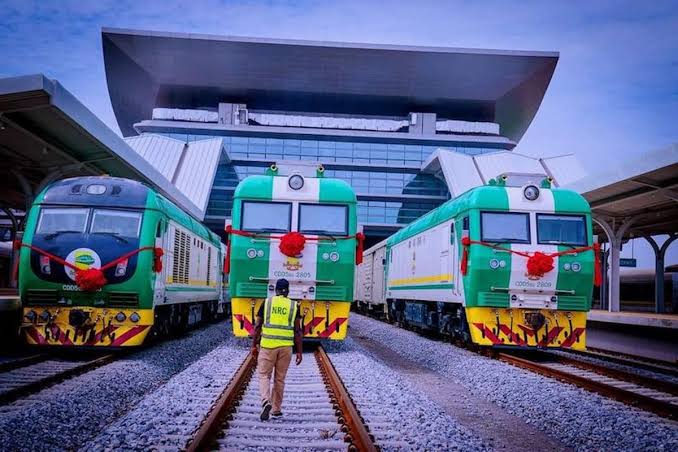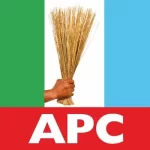The Federal Government has restated its determination to develop, upgrade and modernise Nigeria’s railway transport infrastructure.
The Minister of Transportation, Mu’azu Sambo, said this on Tuesday in Abuja at the 2nd International Railway Conference and Exhibition with the theme “Powering AfCFTA with Sustainable Railway Development’’.
The two-day event is organised by the National Chamber Policy Centre of Abuja Chamber of Commerce and Industry (ACCI), in partnership with the Federal Ministry of Transportation and African Railway Consulting Limited.
Sambo, represented by the Permanent Secretary in the ministry, Mrs Magdalene Ajali, emphasised the need to develop the railway transportation sector to provide alternative mode and also complement other modes of transportation.
“No doubt, you will all agree with me that railway transportation is practically the commonwealth of the masses all over the world as it provides the most important linkage in inter-modal transportation system.
“It is a safe, fast, affordable and reliable means for movement of passengers and freight in large quantities,’’ Sambo said.
He expressed worry that the full implementation of the 25-year strategic vision for the full implementation of the development of Nigerian railways suffered setback.
This he said was due to discrepancies in government policies and inadequate funding of the rail sector.
According to Sambo, others are absence of adequate, capable and experienced private investors among others.
He, however, said that in spite the challenges, the Federal Government recorded giant achievements.
“The present administration upon assumption of office since 2015 has taken railway development as one of its cardinal projects to ensure that it actualises its infrastructure development master plan.
“Among the giant achievements recorded presently are: completed and currently in operation, the 1st and 2nd segments of Lagos-Kano standard gauge.
“The ongoing rehabilitation and reconstruction of the existing Eastern narrow gauge rail line with extension to Bonny Deep Seaport and the commenced construction of double track standard gauge fallway from Kaduna-Kano which is the 77 segment of Lagos-Kano railway project.
“Commenced construction of the Kano-Maradi (Niger Republic) standard gauge railway with a branch line from Kano to Dutse and commenced preliminary studies on connection of the Lagos-Kano standard gauge railway to TinCan Port and Lekki Deep Seaport.
“Commenced construction of Rolling Stock and Wagon Assembly Plant in Kajola, Ogun and construction of Transportation University in Osura, Katsina State,’’ he said.
The minister said that the Nigerian Railway Corporation (NRC) was making efforts at improving and sustaining intra and intercity mass transit rail services in the state capitals.
According to him, this is along the rail corridor, notably “Lagos, Abeokuta, Ibadan Oshogbo, Efforin, Minna, Kaduna and Kano,
“Having identified the achievements, the ministry has also conducted feasibility studies on some selected route alignments it considered viable for development.
Among the proposed railway route alignments are: Zaria—Funtua — Gusau — Kaura Namoda — Sokoto — illela — Birnin Koni (520Km).
“High speed: Lagos-Ibadan-Oshogbo-Baro-Abuja (615km) and Ilela – Sokoto — Jega — Yauri —Makera (408Km Approx.).
“Others are Aba—Ikpene—Ibiono—Itu (Spur Uyo) Odudukpani— Calabar (340Km Approx.), Calabar—Ikom -Obudu— Ogoja – Wukari – Yola – Maiduguri (1,068Km).
“Kano — Nguru — Gashua – Damaturu – Ngala (707Km),’’ Sambo said.
The President of ACCI, Dr Al-Mujtaba Abubakar said that the conference sought to ignite conversation around the development of the railway system in Africa and how Africa can power continental free trade with sustainable railway development agenda.
Abubakar said that the state of railway development in Africa demanded an urgent meeting of all critical stakeholders to brainstorm on fast- tracking rail connectivity to meet the demands of African Continental Free Trade Area (AfCFTA).
“This railway conference becomes necessary due to the importance of rail transportation to development.
“Railways are a climate-smart and efficient way to move people and freight. It promotes economic growth while cutting greenhouse gas emissions.
They are a clean and compact way to move millions of passengers and millions of tons of goods across countries and continents. Railroads decreased transportation costs, thereby, making farming production for export markets profitable.
He further said that the discourse on the AfCFTA could not be complete without strategic attention to the role of railway in African development.
“As railway contributed immensely to the growth and development of Europe and North America as well as Somalia, its invaluable role in the successful implementation of AfCFTA cannot be under estimated.’



